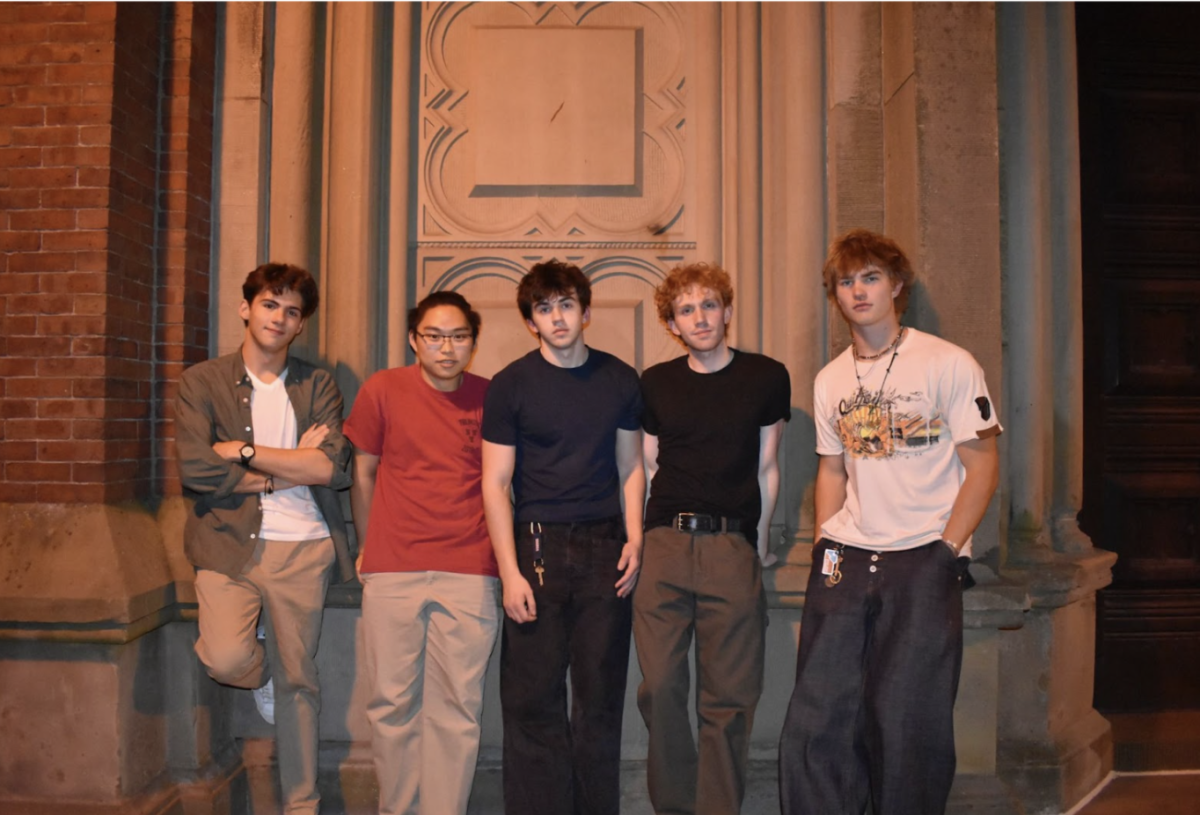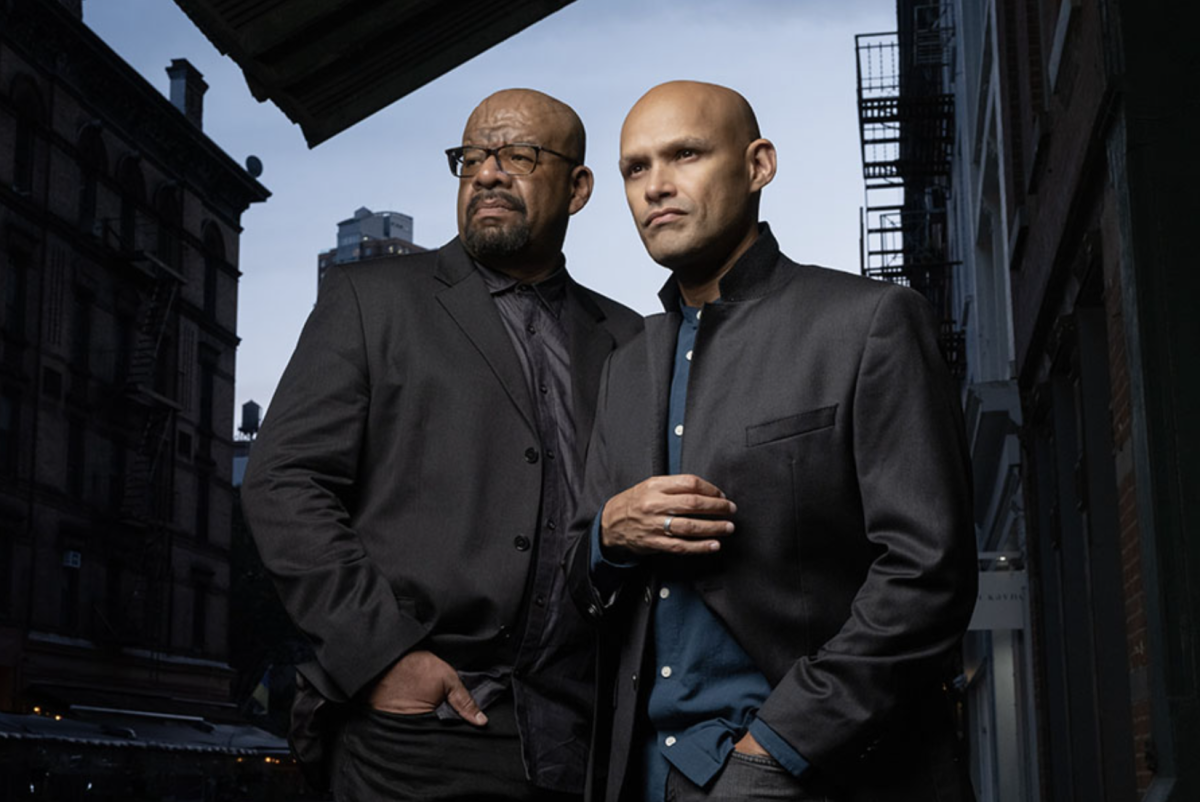Hailing from Rahway, New Jersey and now located in Boston, brothers Charlie and Jack Silver have combined their musical talents to form indie-rock band Cut The Kids In Half. Their debut album, “What We Became,” is a truly prodigal work — a masterclass in songwriting, storytelling and purposeful instrumentation. In the wake of their album’s release, I spoke with the brothers and bandmates to learn more about their project.
What are your respective roles when it comes to writing and recording music?
Jack: “We do work very closely together when we’re writing songs, but we have very different processes and roles within the band. Charlie writes all of the music; I don’t really know any instruments or play anything. I write all of the lyrics, and most of the melodies. But the way we work is not separate. When we’re sitting down to write a song, he’ll be playing a guitar riff, I’ll be coming up with melodies. But he’ll also throw out melodies and I’ll throw out ideas for guitar even though I can’t really speak in that language. It’s a very collaborative process.”
You referred to writing music as a language — do you think this is a universal language or something that the two of you have honed together as you’ve tapped into this relationship?
Jack: “My perspective is that any other guitarist I would work with would think I’m crazy if I tried to communicate with them. I kind of tell Charlie to make things sound more like whatever vague idea I have in my head. Like, make it sound ‘brighter’ or make it sound more like a certain color or ‘bigger’ or ‘wider.’ Words that aren’t exactly the best descriptors, and yet Charlie tends to get my drift.”
Charlie: “Yeah, we’ve gotten very good at communicating with each other, and I’d say especially now that we’re in college and we have such limited time together, we’ve gotten very efficient at describing the sounds and visions that we share.”
What would you say is the thesis, the main message of this album?
Jack: “It’s an album that I poured a lot of myself and my ideas and my stories into. When we first started writing it, I think Charlie and I were very focused on writing a coming-of-age album, if you will. We were focused on that Bruce Springsteen “Born to Run” energy — escaping your hometown, growing out of your parents’ house, becoming your own person… But I also think that now that I look at it as a complete picture, I can say that it’s less about leaving a place or childhood behind, and more about leaving a version of yourself behind, and becoming happy and comfortable and proud of the new version of yourself. I guess it speaks to something larger — I hope it does.”
In terms of lyrical content, how much of it would you say is storytelling or real experiences or some combination of the two?
Jack: “I think for me, with lyricism — I would argue with any art form — there has to be a little of yourself, a little of the artist embedded in it. But I don’t think these [songs] are entirely based on real life. Sometimes I go back and listen to a song and I think to myself, ‘did I really feel like that, or is that an exaggeration of an exaggeration that has been buried by time and nostalgia and all those things?’… with a lot of [the songs], there are kernels of truth in them, but it is very much not based entirely on experiences I had. I just like telling stories. I like expanding on a single thought and saying, ‘what could that be if it was a six-minute song?’”
My favorite song on the album was “Riverbend”. It felt like the centerpiece of the album, and is notably the longest song at 11 minutes. Can you speak to the process of creating this song?
Jack: “Riverbend” is the most honest [song]…Riverbend really formed over the course of three months or so … We hit the ground running, and then every single line or riff or melody after that was just laborious. It really did feel like dragging through the mud because we cared about it. We knew we wanted to create something bigger than any of the other songs, so we set out with that goal. It really only took shape within two weeks or so, where we had been stagnant for a long time, and all of the sudden the song just came to life, lyrically for me. It felt like it clicked into place and the lyrics kind of fell out.”
Charlie: “I think pretty early on in the process we started referring to the song as ‘11 Minute’ or ‘9 Minute Song’, far before we had nine or eleven minutes worth of material. But I think since we came up with the outro part, we had this idea of this grand, long masterpiece to be on the album. This vision was there from the start.”
Now that you’ve finished this album, do you have a vision of what the future looks like for you guys?
Jack: “I can say Charlie and I are both very proud of the album and happy to have it out there. We wanna just sit with it for a minute and let people enjoy it. You know, our many adoring fans … But at the same time, we are kind of sick of talking about these nine songs, and we are itching to play something new and to create stuff and put out new material. The goal would be to not take as long on the next [album]. As far as what we wanna do with it, I think expanding musically is a big thing … It’s just about creating and creating and not looking back”
Charlie: “We’re just really looking forward to creating and doing something new with our sound. I can’t wait to see what it turns into.”
Contact the editor responsible for this story: Norah Catlin







